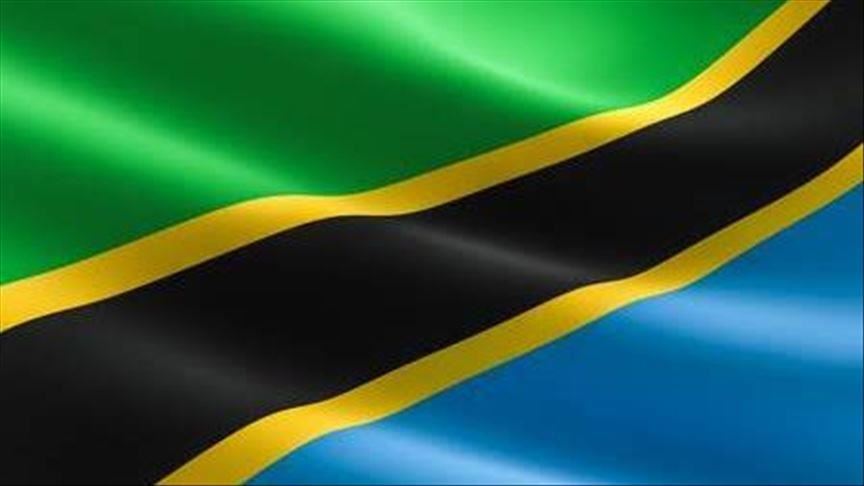Tanzania launches campaign to deter sexual corruption
Sexual corruption widespread phenomenon in Tanzania

DAR ES SALAAM, Tanzania
Judith sits under a huge baobab tree at the University of Dar es Salaam and studies while shielding herself from the scorching sun.
She is surrounded by a pile of books as she prepares for her supplementary examinations.
“I am the victim of sexual abuse. I refused sexual advances from one of my teachers. He decided to punish me with supplementary examination,” she said.
The 24-year-old student at the faculty of social sciences is worried about her academic future as sexual harassment continues to take root at the university.
Judith is a pseudonym and Anadolu Agency is using them in this story to protect the identities of the victims who fear reprisals.
Judith is one of many female students subjected to sexual abuse at institutions of higher learning.
“I honestly don’t want to spoil my future, that’s why I keep silent” she says.
Sexual corruption commonly known as “sextortion” is a serious problem in Tanzania with grave implications for society.
Like Judith, female students are particularly vulnerable to abuse perpetrated by instructors.
Sextortion is a form of corruption that employs non-physical forms of coercion to extort sexual favors from the victim. In most cases, those entrusted with power, for example educators, government officials or judges, abuse authority to suit sexual fantasies.
The University of Dar es Salaam, one of Africa’s respected academic institutions, was in the spotlight two years ago after a whistle-blower accused lecturers of extorting sexual favors.
The school's administration denied the allegations.
Sexual corruption is a widespread phenomenon in Tanzania. While the distasteful trend has been in existence for years, its subliminal nature, owing to unreported cases, has enabled it to flourish.
When students at the Institute of Social Work graduated last year, Jasmine was supposed to be wearing an academic gown. But her dreams were shattered because she fell ill before she could finish examinations. However, upon recovery she sought to sit for special exams. Before she could take the exams a lecturer in charge called her in his office and started making sexual advances and promise to clear the path if she agreed to sleep with him.
“I had to postpone my studies and repeated the year,” she says.
Last year, a 70-year-old lecturer with Tanzania’s National Institute of Transport, Samson Mahimbo, was jailed for soliciting sex from a female student in exchange of good marks.
A culture of shame widely embraced by society, has made it increasingly hard for victims to come forward, according to women's rights groups.
As part of efforts to quell the rising wave of sexual harassment, Tanzania’s Prevention and Combating of Corruption Bureau (PCCB), has launched a special campaign to raise awareness about the dangers of sexual corruption.
Under the banner of “kataa rushwa ya ngono,” Swahili meaning, “reject sexual corruption,” trained officials will move through the streets to educate people on how to defeat the social malady.
Janeth Mawinza, PCCB’s director in charge of the initiative said the campaign will be conducted every week in Dar es Salaam.
“The idea is to raise awareness about sexual harassment, and also to give the victims necessary tools to avoid falling into the trap,” she said.
Mawinza said sextortion is more dangerous than other forms of corruption because it exposes the victims to sexually transmitted disease, including HIV/AIDS.
“We want to protect the young generation from this misery, which threatens lives and hurt the feelings of the victims,” she said.
According to the initiative, jointly conducted with the police gender desk to fight gender-based violence, it also seeks to find justice for the victims of sexual abuse who may be suffering in silence.
“Our trained officers will guide the victims of sexual corruption to seek justice,” she said.
The sexual corruption campaign, comes barely four years after the east African country established gender desks at police stations.
Christine Onyango, an official from Ilala district’s police gender desk applauded the move to deter sexual violence.
“We encourage victims of sexual abuse to come forward and report their experiences,”
While sextortion inflicts physical and mental distress on the victims, observers say authorities have failed on multiple fronts to quell it.
“ I don’t think the victims of sexual abuse get the attention they deserves,” says Judith.
While sextortion is criminalized in Tanzania, campaigners say the law is too weak to deter perpetrators who often pay fines and get released.
Section 25 of Tanzania’s anti-corruption law of 2007 states: “Anybody being in the position of power or authority, who in the exercise of his authority, demands or imposes sexual favours, or any other favours on any person as a condition for giving employment, a promotion, a right, a privilege, or any other preferential treatment, commits an offence and shall be liable, on conviction, to a fine of not exceeding five million shillings or to imprisonment for a term not exceeding three years or both.”
Fighting for social justice is part of a growing pattern across Africa, where governments have joined forces with women’s rights activists to curb the rising wave of gender-based violence.
While anti-corruption laws offer some grounds for prosecuting sextortion, analysts say sexual discrimination and harassment laws often target the kind of abuse involved in sextortion.
In Tanzania, where nearly nine in every 10 women have experienced sexual harassment, activists say the campaign against sexual corruption will raise the momentum to fight it.
Leila Sheikh, a Dar es Salaam-based social justice activist, urges women to raise their voices against the vice.
“Women need to speak up, to raise our voices against gender-based violence,” she said
Anadolu Agency website contains only a portion of the news stories offered to subscribers in the AA News Broadcasting System (HAS), and in summarized form. Please contact us for subscription options.



